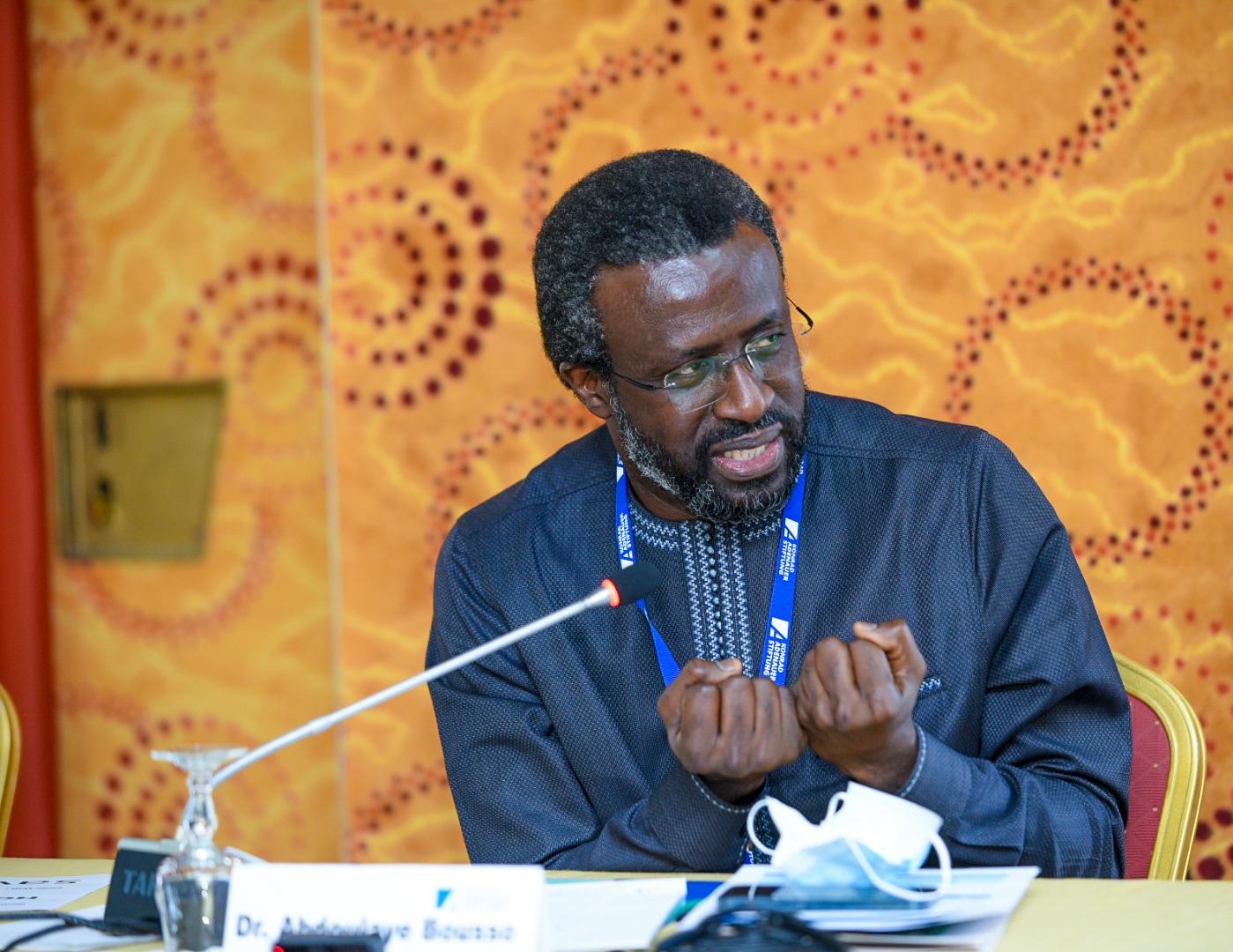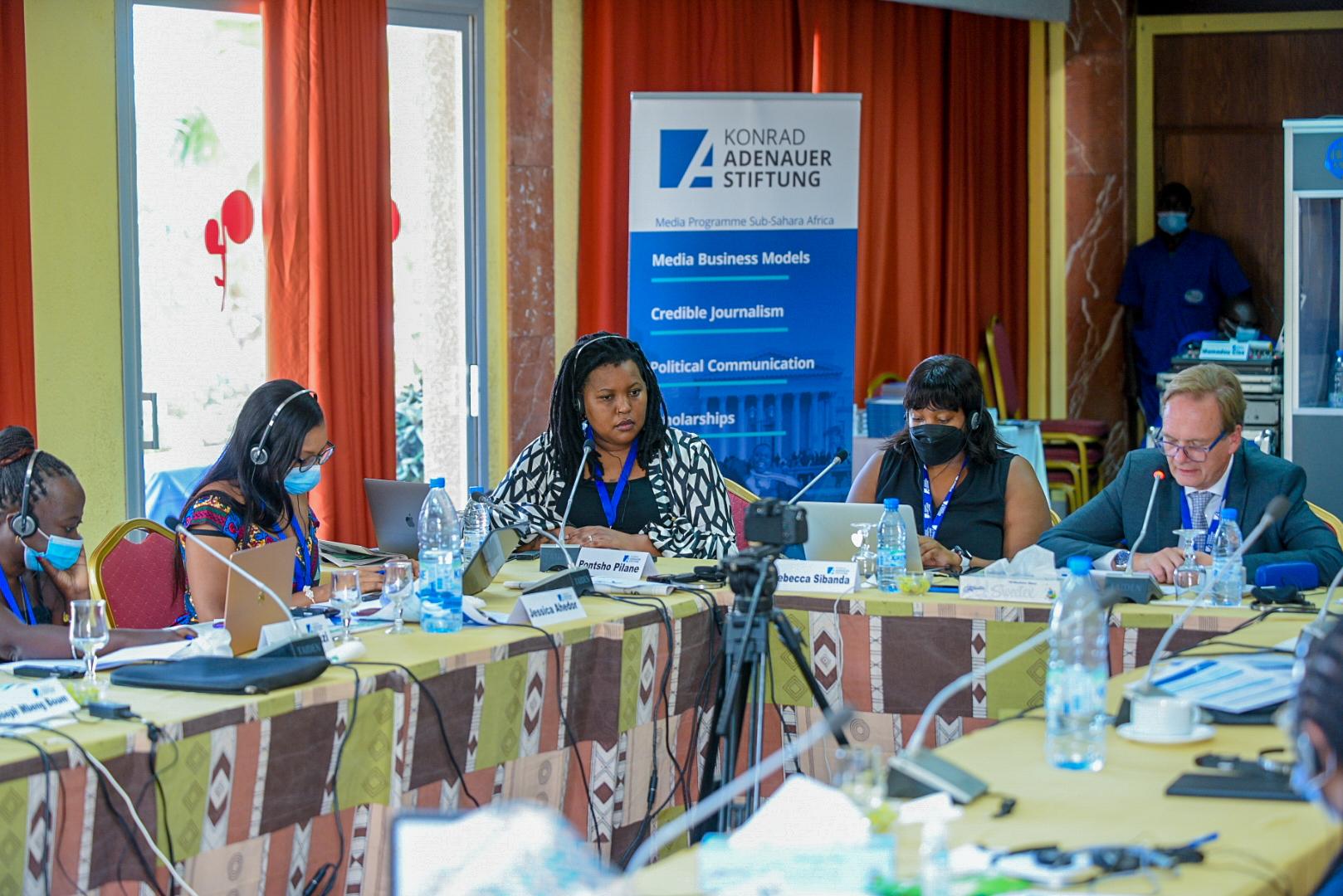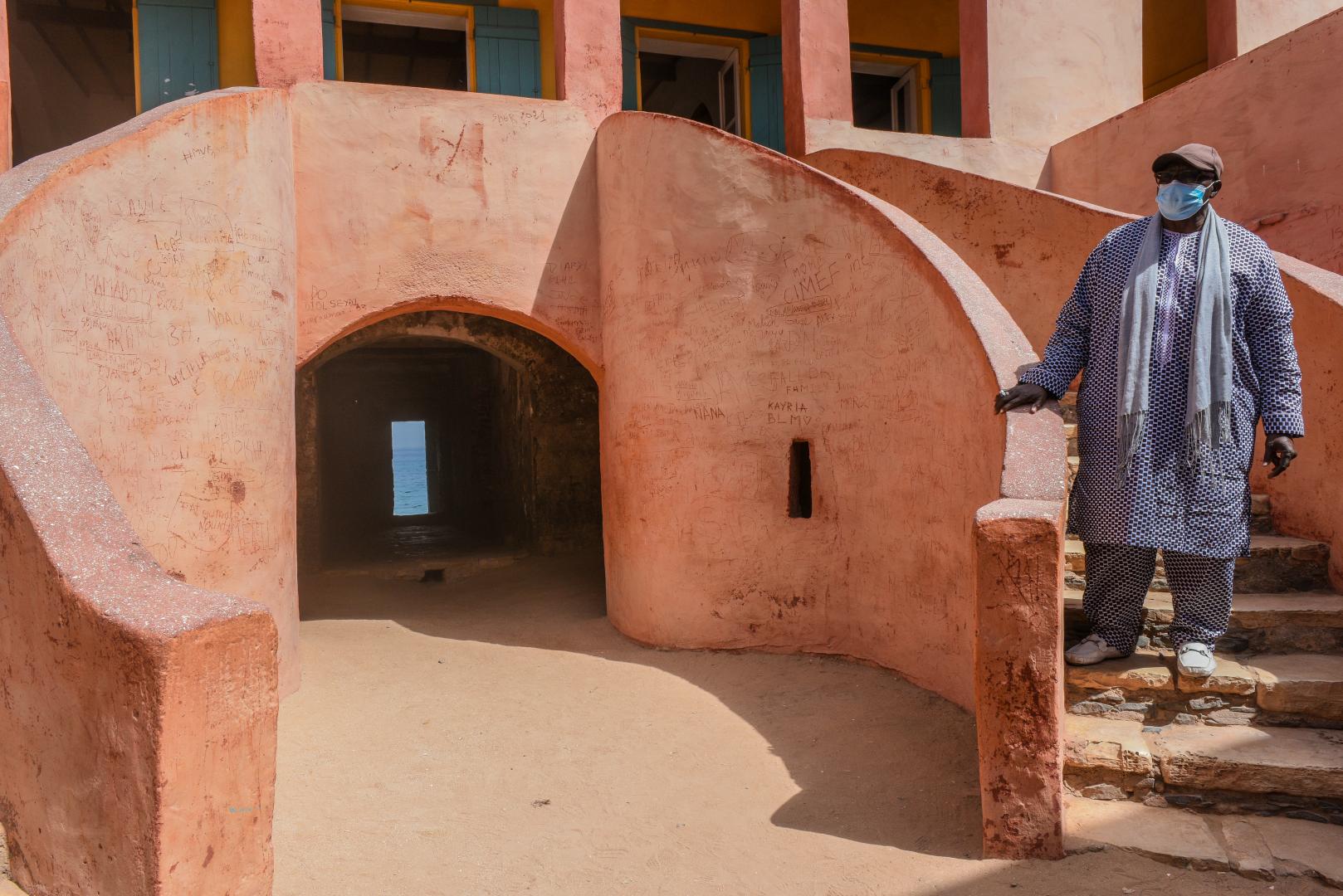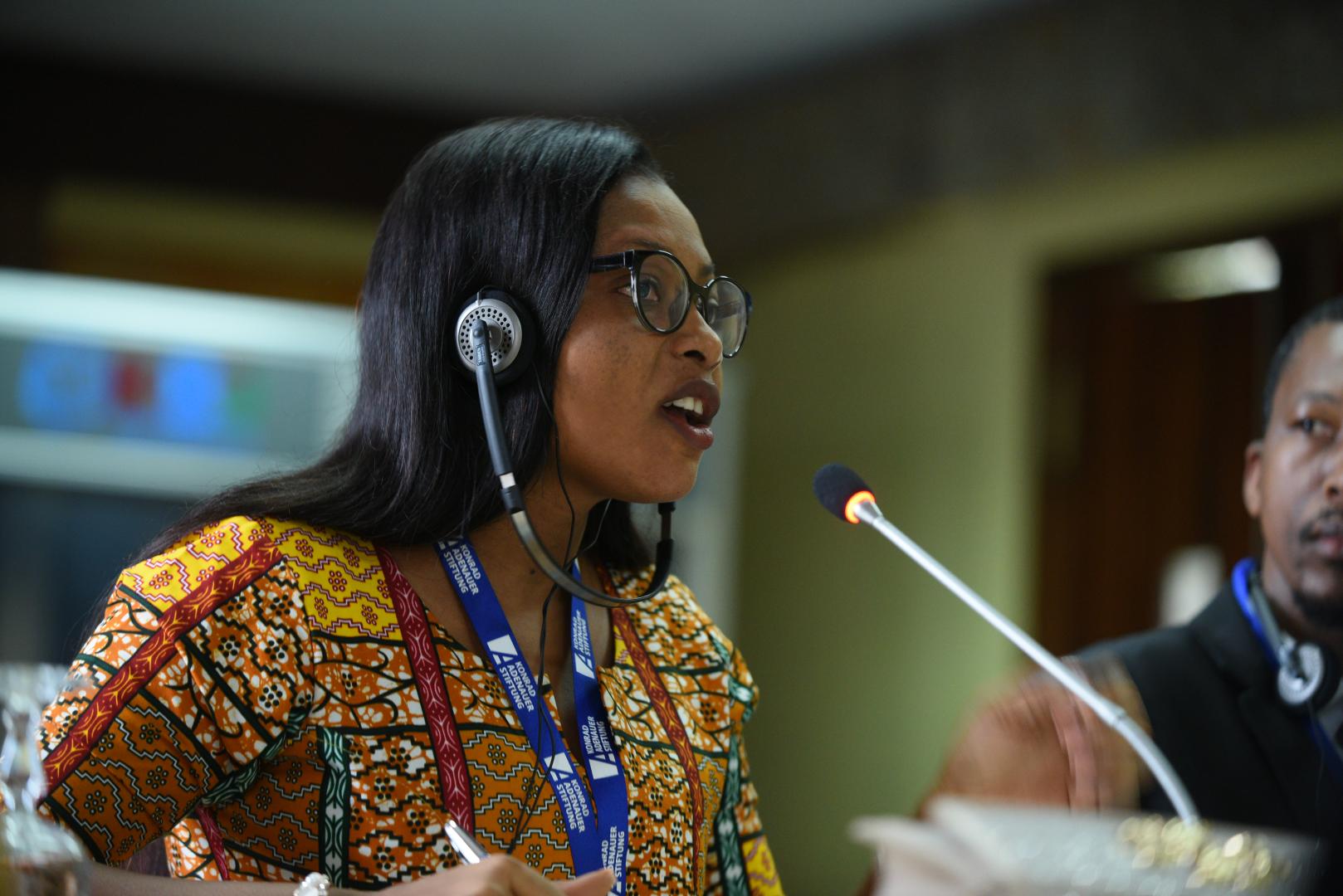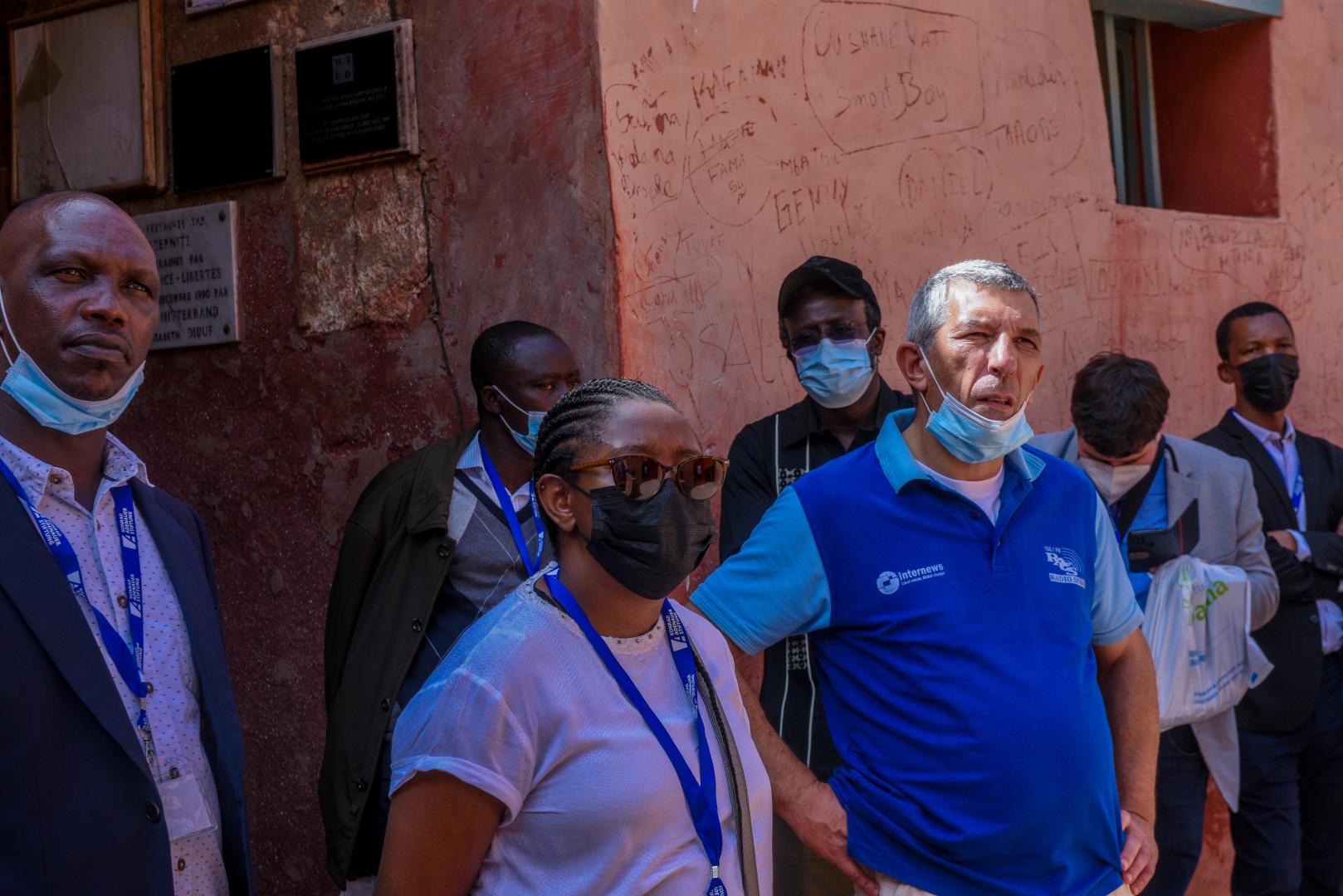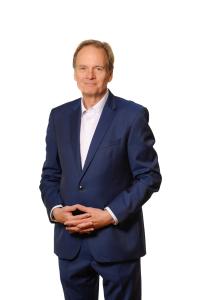Around this time in 2020, KAS Media Africa was preparing to host such an event but then Covid-19, subsequently declared a pandemic, suddenly put a spanner in the works. As a result, the event was transformed into three brief online discussions and podcasts with media practitioners and health experts. “The conceptualization of this event happened before Covid because we have been trying for a while to highlight the importance of health journalism,” said KAS scholar Pontsho Pilane, a health journalist who also served as a conference facilitator. Health reporting, she added with disappointment, was marginalized. However, a lot has changed, with health journalism getting recognition as the public turned to the media for guidance in Covid times.
“After two-and-half days [of the conference], I think that one thing is for sure: The future of health journalism looks better than it did two years ago,” remarked KAS Media Director Christoph Plate. “There’s funding. But most of all – and I think that that’s even more important than the funding – there’s a demand, and there’s an acknowledgement of what health journalism can do.”
This is contrasted, as Plate reflected, by industry-wide layoffs as media houses cut costs to stay afloat. Health desks have also shrunk consequently, something that has compromised quality, as Plate and Zimbabwean journalist Shamiso Yikoniko observed. Two participants from West Africa noted with concern that some universities in their region are cramming three and four semesters into 12-month cycles. This threatens the quality of future journalists from such institutions. Offering an outsider’s view, Dr. Abdoulaye Bousso, former director of the Senegalese Health Ministry’s Emergency Operations Centre, urged media practitioners to invest more time to familiarize themselves with the medical world in order to eliminate miscommunication and become more effective in their jobs.
Further, as Plate noted, the conference was an opportunity for journalists, academics and other stakeholders to share notes and grow their networks. For their part, the participants felt that it was enlightening, with topics under discussion ranging from mental health to the forgotten health issues in African media in the wake of Covid-19. Also on the agenda was how to combat health misinformation, communication problems, and issues of sustainability. Stefan Wollnik, a PhD candidate at the University of Duisburg-Essen, Germany, presented his paper on perceptions of health journalism in Africa and Europe.
Broadly, the gathering went a long way to help media practitioners introspect, asserted Pilane. “Do we have a capable media sector that understands how to report on health matters, that can inform the public? Do we have the skills? Those are the points we wanted to look at.”



